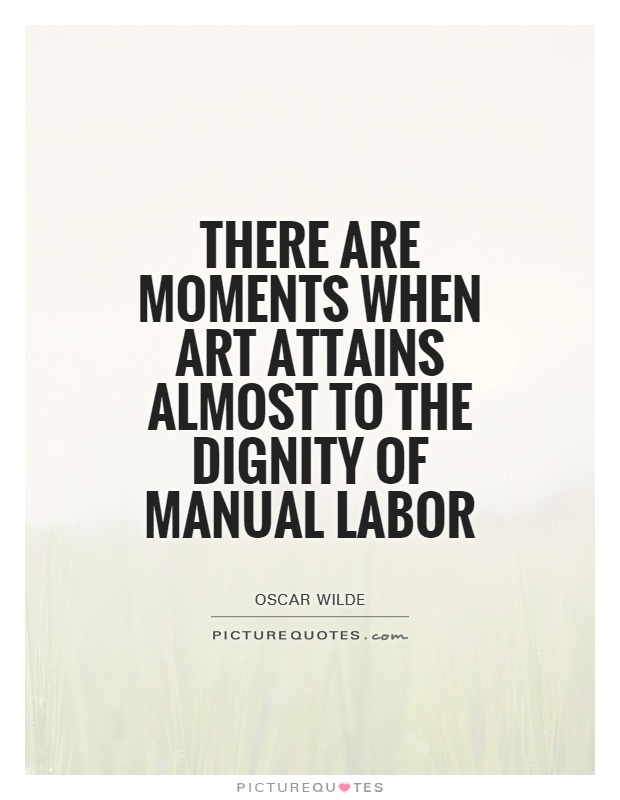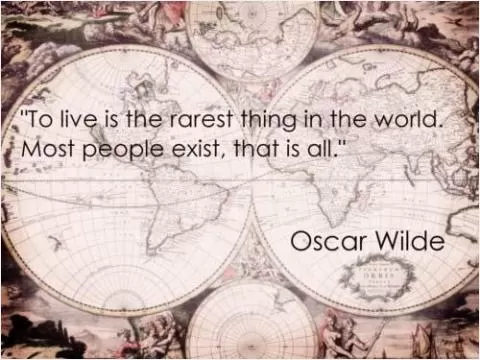There are moments when art attains almost to the dignity of manual labor

There are moments when art attains almost to the dignity of manual labor
Oscar Wilde, the renowned Irish playwright, poet, and author, was known for his wit, humor, and unique perspective on art and society. One of his most famous quotes, "There are moments when art attains almost to the dignity of manual labor," speaks to the idea that creating art is not always a glamorous or effortless endeavor. In fact, Wilde believed that true artistry required hard work, dedication, and a willingness to get one's hands dirty.Wilde's statement challenges the romanticized notion of the artist as a tortured genius who effortlessly produces masterpieces without breaking a sweat. Instead, he suggests that creating art is a laborious process that requires skill, discipline, and perseverance. Just as a manual laborer must toil away to build or create something tangible, so too must an artist put in the time and effort to bring their vision to life.
Wilde's own life and work exemplify this idea. Despite his reputation as a dandy and a bon vivant, Wilde was a prolific writer who spent countless hours honing his craft. He wrote plays, poems, essays, and novels, all of which required careful thought, planning, and revision. Wilde understood that artistry was not just about inspiration or talent, but also about hard work and dedication.
Moreover, Wilde's quote suggests that there is a certain dignity in manual labor that is often overlooked or undervalued in society. In a world that prizes intellectual pursuits over physical labor, Wilde reminds us that there is honor and nobility in working with one's hands and creating something tangible. Whether it is building a house, crafting a piece of furniture, or painting a masterpiece, manual labor is a form of artistry in its own right.












 Friendship Quotes
Friendship Quotes Love Quotes
Love Quotes Life Quotes
Life Quotes Funny Quotes
Funny Quotes Motivational Quotes
Motivational Quotes Inspirational Quotes
Inspirational Quotes